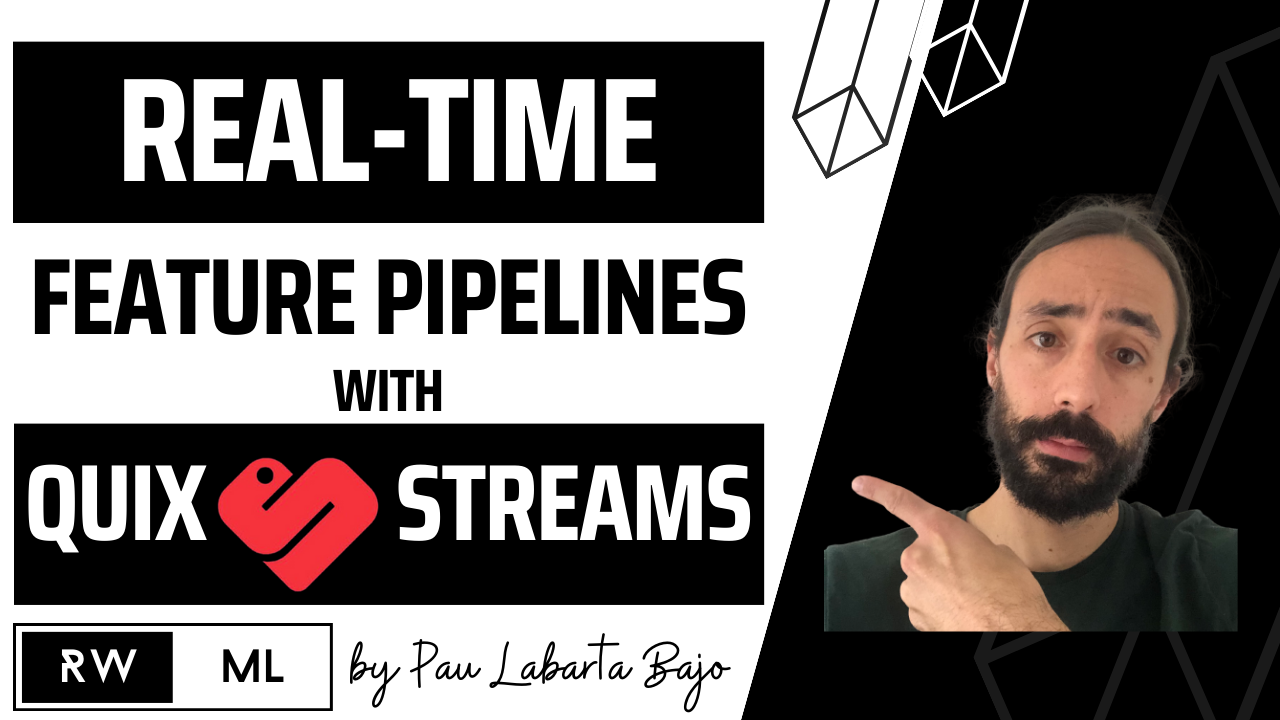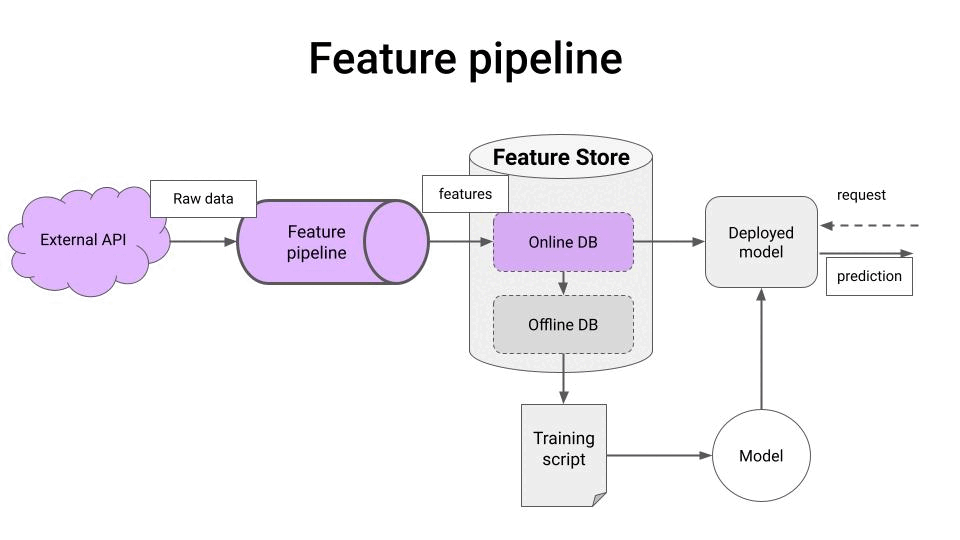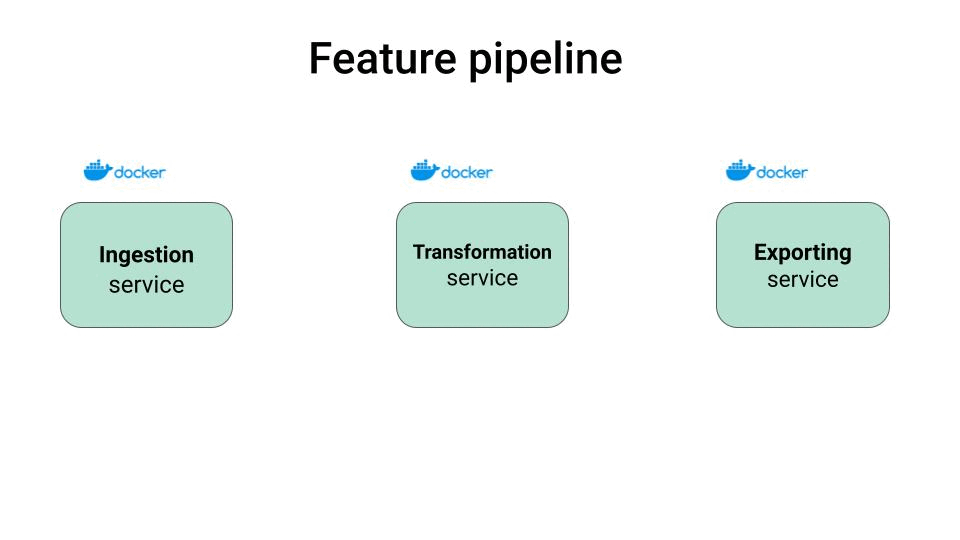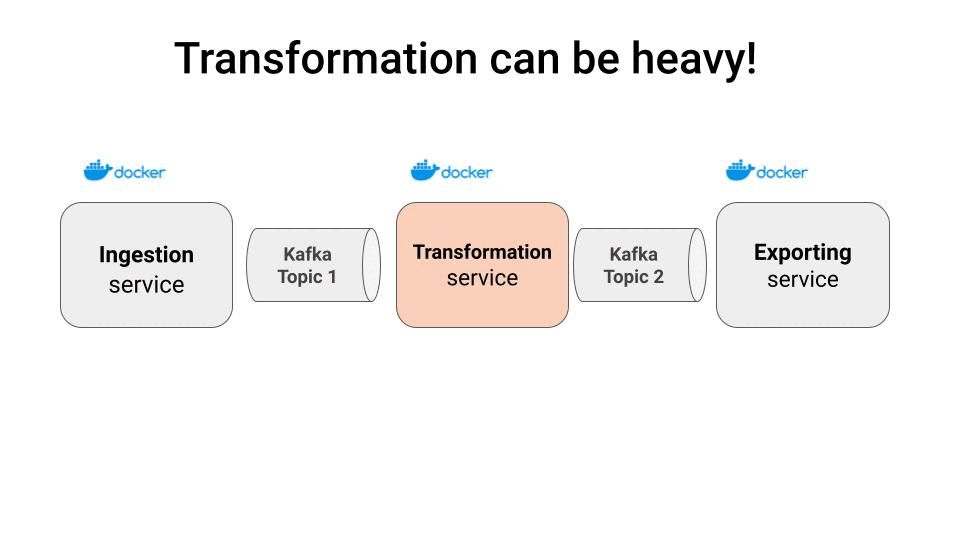Apache Kafka + Python = Quix Streams ❤️
- The problem
- Example
- Run the pipeline locally
- Deployment
- Streamlit dashboard for monitoring
- Wanna learn more real-time ML?
Imagine you want to build a trading bot for crypto currencies using ML.
Before you even get to work on your ML model, you need to design, develop and deploy a real-time feature pipeline that produces the features your model needs both at training time and at inference time.
This pipeline has 3 steps:
-
Ingest raw data from an external service, like raw trades from the Kraken Websocket API.
-
Transform these trades into features for your ML model, like trading indicators based on 1-minute OHLC candles, and
-
Save these features in a Feature Store, so your ML models can fetch them both to generate training data, and to generate real-time predictions.
In a real-world setting, each of these steps is implemented as a separate service, and communication between these services happens through a message broker like Kafka.
This way you make your system scalable, by spinning up more containers as needed, and leveraging Kafka consumer groups.
And this is all great, but the question now is
How do you implement this in practice?
Let's go through an example.
In this repo you have a full implementation of a production-ready real-time feature pipeline for crypto trading, plus a real-time dasbhoard to visualize these features.
We use Quix Streams 2.0 a cloud native library for processing data in Kafka using pure Python.
With Quix Streams we get the best from both worlds:
-
low-level scalability and resiliency from Apache Kafka, so our code is production-ready from day 1, and
-
an easy-to-use Python interface, which makes this library extremely user-friendly for Data Scientist and ML engineers like you and me.
In this repository we have implemented 3 services for our real-time pipeline
-
trade_producer→ reads trades from the Kraken Websocket API and saves them in a Kafka topic. -
trade_to_ohlc→ reads trades from Kafka topic, computes Open-High-Low-Close candles (OHLC) using Stateful Window Operators, and saves them in another Kafka topic. -
ohlc_to_feature_store→ saves these final features to an external Features Store.
Plus a
- Streamlit
dashboardto visualize the saved features in real-time.
The final pipeline has been deployed to the Quix Cloud, as well as the Streamlit dashboard.
-
Create an
.envfile and fill in the credentials to connect to the serverles Hopsworks Feature Store$ cp .env.example .env -
Build Docker image for each of the pipeline steps:
trade_producer,trade_to_ohlcandohlc_to_feature_store$ make build -
Start the pipeline
$ make start -
Stop the pipeline locally
$ make stop
This pipeline can run on any production environment that supports Docker and a message broker like Apache Kafka or Redpanda. In this example, I have deployed it to Quix Cloud.
Quix Cloud provides fully managed containers, Kafka and observability tools to run your applications in production.
To deploy this pipeline to the Quix Cloud you just need to
- Sign up for FREE
- Create a Quix Cloud Project and an environment, and
- Fork this repository and link it to your newly created Quix Cloud environment.
This video will help you get up and running on Quix Cloud
The streamlit app at /dashboard periodically fetches the latest data from the feature store, and plots it on a dashboard.
The dashboard has been deployed to Quix Cloud and it is publicly accessible here.
Join more than 13k subscribers to the Real-World ML Newsletter. Every Saturday morning.





